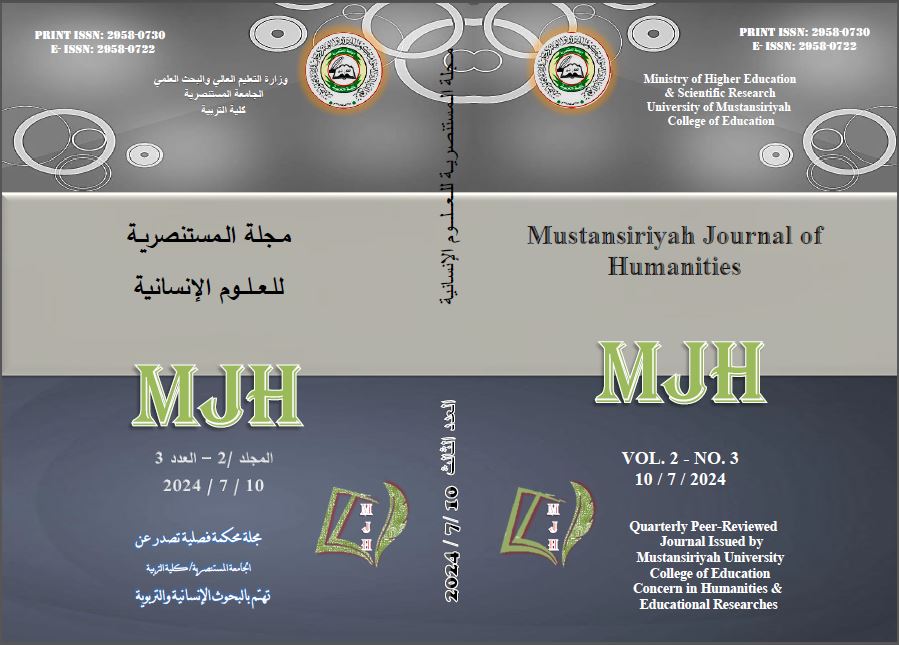The effect of the fishbowl strategy on the achievement and retention of fifth grade students in history
DOI:
https://doi.org/10.47831/mjh.v2i3.371Keywords:
: strategy, aquarium, collection, retentionAbstract
The present study aims to investigate the influence of the application strategy on the academic performance of fifth-grade literary students in the geography subject. This study seeks to test the null hypothesis, suggesting no statistically significant difference at the 0.05 significance level between the mean achievement scores of students in the experimental group, who are learning natural geography through the application strategy, and those in the control group, who are taught the same subject using the conventional method, in the post-achievement evaluation. A total of 56 students were included in the study sample, and the researcher adopted an experimental research approach. The research instrument utilized was a post-achievement test comprising 25 items, following the establishment of its validity and reliability. Upon data analysis, the findings revealed that the experimental group outperformed the control group in the post-achievement assessment. Based on the results, the researcher drew a number of conclusions, highlighting the effectiveness of the application strategy in enhancing the academic performance of fifth-grade literary students in natural geography, demonstrating its superiority over the traditional approach. The conclusions also encompassed various recommendations put forward by the researcher, emphasizing the significance of incorporating innovative teaching methodologies, such as application strategies, in the teaching of natural geography. Additionally, the researcher suggested the necessity of conducting further research to explore the impact of different application strategy models on various dependent variables, including attitudes, retention, cognitive preferences, and the acquisition of geographical and historical concepts





